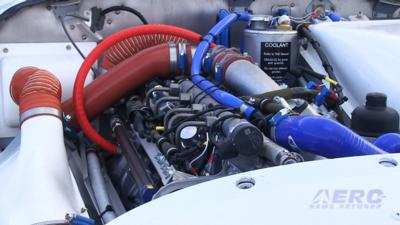Analyst Brian Foley Says More Diesel Options Likely To Come To Market
Every industry has periodic innovation leaps that markedly differentiates its new products from legacy ones. Advances in cockpit electronics were a recent example for small general aviation aircraft, with pilots offered flat panel screens instead of gauges, precise GPS navigation, graphical depictions of weather and traffic and even synthetic vision that portrays the outside world even when it’s obscured. “The next leg will come from engine advances, and interestingly what will be embraced as the newest technology in the industry will in fact be a long established one optimized for aviation,” predicts consultant Brian Foley.

Engine technology has remained relatively unchanged since the 1950’s when engine makers used leaded gasoline to create lots of horsepower from a small, lightweight powerplant. Because of the extraordinary certification costs of new engines and a simple lack of anything better, these engines remained the mainstay of small general aviation aircraft for decades. Compounding the stall in progress was the reluctance of engine makers to offer even casual improvements for fear that a litigious environment would view any change as an
admission that the original design was defective. The motivation to innovate and execute was lost in time – a long time. Foley suggests there is finally a confluence of factors coming together to effect change.
First, environmentalists are calling for a ban on leaded aviation gasoline (avgas) which powers the majority of today’s light general aviation aircraft. While a suitable avgas replacement is in the works, it’s not available now and there are still unknowns. One result is that aircraft manufacturers are finding it increasingly difficult to attract buyers who are understandably reluctant to purchase when the future of their specified fuel type is clouded.
Adding to the need for change is the high sales growth potential in emerging markets. In many parts of the world outside of North America or Europe avgas is often unavailable or in short supply, and in many cases prohibitively expensive.
The last big driver is the need to reduce operating costs. When avgas engines were originally developed fuel cost was a fraction of what is today. They were even purposely designed to use raw fuel to cool the cylinder heads - a rather expensive coolant. Foley believes that the industry response to these issues, and the next noticeable change throughout the general aviation fleet, will be the widespread adoption of the diesel engine. “These aren’t your father’s diesels, but rather high-tech, computer-controlled, lightweight power plants designed specifically for the needs and rigors of aviation.”

Diesel engines are nothing new to aviation but until now they’ve never been quite perfected. Early and several existing models are adaptations of automotive diesel engines which aren’t optimized for aviation, particularly in the areas of weight, durability and future availability of parts - which an automaker can suddenly discontinue. Engine maker bankruptcies and durability issues further created a poor perception among pilots and a
hesitance to adopt. “In some ways putting a modified car engine in a plane is akin to putting a marinized boat motor in a Le Mans race car," Foley said. 'Yes it will work but why would you?”
The final push will come from the area of economics. Purpose-designed diesel engines are upwards of 30-50% more efficient than avgas engines and turboprops. Having a more efficient engine in the airframe permits more range, and even more payload by needing to carry less fuel. They can burn either diesel or Jet-A jet fuel which are plentiful in countries and airports around the world - a boon to the growing emerging markets segment. "We’ll see manufacturers move more aggressively to offer diesel options in their models over time, and eventually switch to predominantly diesels. Doing so simultaneously addresses environmental concerns, future fuel availability, emerging market growth and market demands for improved operating economics.”
(Images from file)
 ANN's Daily Aero-Linx (04.16.24)
ANN's Daily Aero-Linx (04.16.24) Aero-News: Quote of the Day (04.16.24)
Aero-News: Quote of the Day (04.16.24) Airborne 04.10.24: SnF24!, A50 Heritage Reveal, HeliCycle!, Montaer MC-01
Airborne 04.10.24: SnF24!, A50 Heritage Reveal, HeliCycle!, Montaer MC-01 Airborne 04.12.24: SnF24!, G100UL Is Here, Holy Micro, Plane Tags
Airborne 04.12.24: SnF24!, G100UL Is Here, Holy Micro, Plane Tags Airborne-Flight Training 04.17.24: Feds Need Controllers, Spirit Delay, Redbird
Airborne-Flight Training 04.17.24: Feds Need Controllers, Spirit Delay, Redbird




